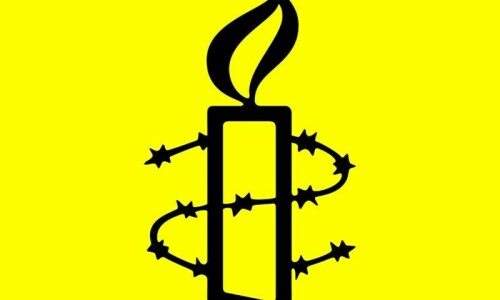KALININGRAD: Russian President Vladimir Putin said on Friday that the country’s 12 World Cup venues should be mainly used for football, and not transformed into concert halls or exhibition centres.
Russia hosted the World Cup in 11 cities in June and July without any major security or discriminatory incidents, receiving praise from fans and global football governing body FIFA.
The country’s efforts are now turning to ensure that the venues and infrastructure built for the month-long tournament do not fall into disuse.
Speaking at a meeting of government and sports officials at the World Cup stadium in Kaliningrad, Putin said the government would financially support World Cup venues for another five years to ensure that they can operate independently by 2024.
“You mention exhibitions, concerts, tourism and a commercial space. That’s alright, the stadium needs to be full,” Putin told Kaliningrad governor Anton Alikhanov about the region’s plans for the stadium’s use after the World Cup. “But ideally we need to strive for every stadium to have a team and every team to have a stadium. Otherwise it will not be a stadium. It will be a concert hall.”
When Russia won the right to host the 2018 World Cup, Putin pledged that the stadiums built would become the homes to vibrant football clubs.
Out of the 12 stadiums used at the World Cup, only six were fully new and commissioned for the tournament, while others were renovated or being built anyway. Six of the 12 stadiums are home to Russian Premier League clubs and there are plans to make another into the national football stadium.
In some of Russia’s World Cup cities, ensuring that World Cup stadiums remain full and financially-sustainable can prove to be a challenge.
Kaliningrad, a Russian exclave wedged between Lithuania and Poland, has a new 35,000-seat stadium but its local football team play in Russia’s second tier.
The use of some of the venues remains unclear, leading Putin to ask Sports Minister Pavel Kolobkov to present a plan for the future of every stadium and training pitch built for the World Cup.
“This needs to be concrete and not only general wishes,” Putin warned.
Putin said that Russia was interested in expanding the use of the fan-ID, a document that was mandatory to attend World Cup matches and showed its holder had been vetted and approved by the Russian authorities. It also allowed foreign fans to enter Russia without a visa.
The CEO of Russia’s World Cup local organising committee, Alexei Sorokin, said the tournament had given a boost to local business, with tourists spending some 100 billion roubles ($1.6 billion) in the country.
In April then Russian Deputy Prime Minister Arkady Dvorkovich said there would not currently be any economic growth in Russia without investment generated by preparations for the World Cup.
Published in Dawn, July 22nd, 2018











































Dear visitor, the comments section is undergoing an overhaul and will return soon.